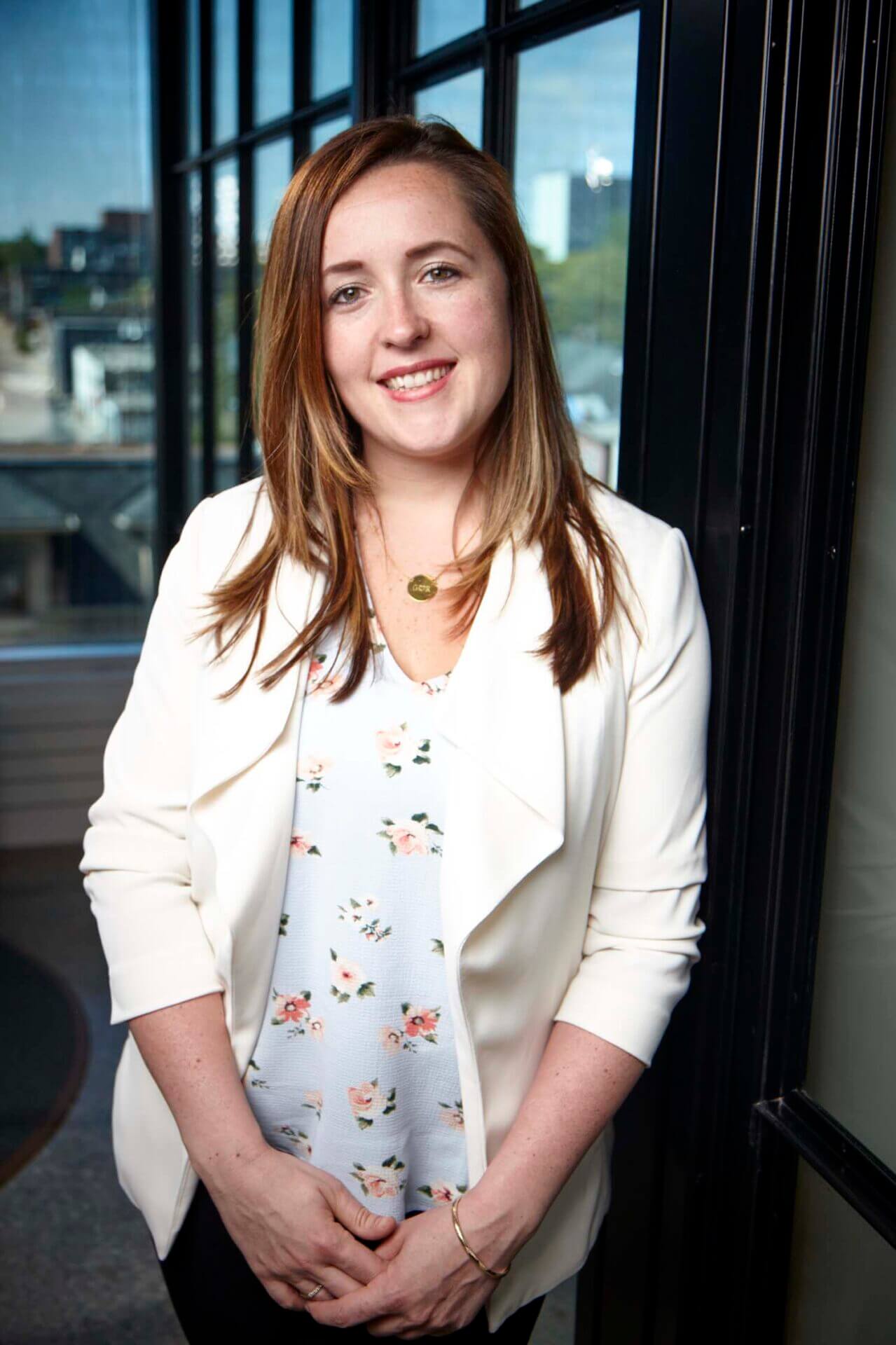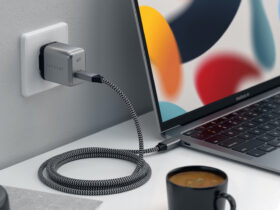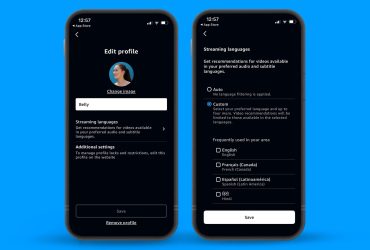The latest candidate in our series of Q&As with influential women in the technology business in Canada is Andrea MacDonald, Head of Tech, Telco, M&E, Twitter Canada
Name: Andrea MacDonald
Job Title: Head of Tech, Telco, M&E, Twitter Canada
Years in the Industry: 18 Years
The Quote That Most Inspires You: There are two lines from the poem, Desiderata by Max Ehrmann that speak to me. The first: “Enjoy your achievements as well as your plans. Keep interested in your own career, however humble; it is a real possession in the changing fortunes of time.” The second: “You are a child of the universe, no less than the trees and stars, you have a right to be here.” There is so much wisdom in this poem, and both of these lines have different meanings to me as I think about my work. The first is a reminder that it is absolutely OK to really enjoy your career and be grateful for it in the here and now. The second is a reminder to me, as a woman who sometimes suffers from imposter syndrome, that I have a right to be in the field, to do this work, alongside everyone else. The full poem can be found here.
What drew you to a career in the consumer and/or business technology industry?
As I was completing my last semester in the Marketing Diploma program at Mohawk college, I noticed a sign on a bulletin board for a brand-new E-Commerce – B2B Specialist post-grad program. The program was designed for both business and computer science students and offered web design and coding classes as well as sales and marketing. I vividly recall thinking to myself that adding a digital foundation to my education would be helpful as I entered the world of business. I knew that tech would play an even more important role in the future, and that this education would be beneficial.
Fortunately, my instinct was correct, and with this combined education in business and now computer science, I was hired as an interactive media assistant at Cossette Media, a perfect role for my acquired skills, and one that would launch me into this amazing industry that I so enjoy being a part of today.
Have you encountered any roadblocks along the way that were related to your gender?
I was very fortunate in the early days of my career to have strong female leaders paving the way. The second role in my career was as a digital account executive at CanWest (now Corus Entertainment). These were the early days of digital media and working for a large broadcaster and print media company, those platforms reigned supreme. Digital was an afterthought, not the priority.
Lucky for me, this department was given to strong female leaders to grow and develop (and that they did!) Our vice president and director were both women and the sales team was predominantly made up of women. The heads of the other “more important platforms” were all men, and their sales teams were also predominantly men or women who were much more seasoned and experienced.
Those early days, we needed to work really hard to access resources, drive cross-platform collaboration, and prove that digital deserved a seat at the table. While we felt like the underdogs at times, this experience taught me how to work strategically, gain influence, and prove value. I count my lucky stars that I was given this opportunity at such an early stage of my career. I attribute a lot of the future success I enjoyed to this foundational learning experience.

What unique characteristics or perspective do you feel you bring to your organization as a woman?
I am fortunate to work in the tech space, surrounded by brilliant, talented, and inspiring women. There are many female voices across the organization and on the leadership team at Twitter. I truly believe that the unique characteristics and perspective that I bring to my organization go beyond my gender.
That said, there are inherent female traits that I know I bring to the table as a leader, that uniquely benefit the team. I am first and foremost a mother to two beautiful children. I know that my experience and dedication as a mother helps me tap into the needs of the team. I see the value of nurturing people’s talents and tapping into what motivates them (skills I leverage as a leader and as a mom). My viewpoint is that when peoples’ needs are met, if they feel heard, trusted, and cared for, they will be set up to do their best work. These are soft skills that are typical female traits. That said, emotional intelligence is not unique to women, and if we can all lean into this more, it is a real superpower that has massive benefits in driving high performing teams.
Technology is historically a male-dominated industry, yet the use of tech is fully embraced by women, and many studies even suggest that females are the primary buyers of tech in the home. What do you feel the technology industry needs to do to attract more women, particularly into high-level positions?
I have seen so many talented and ambitious women pump the breaks on their careers at a pivotal time, to start their families. I have respect for every personal choice anyone makes when it comes to work/family life balance. However, I do think we set a tone in this, and many other industries, that you need to sacrifice your home life to grow in your career.
Something that I think helps combat this perception is when companies have strong parental leave policies, and actively encourage fathers to take parental leave. There is nothing I love more than when a dad takes parental leave. Not only for the benefit of that individual father and their family, but also for the message it sends to every future parent, team member, and leader at the organization. If the culture of an organization is that ALL parents take family leave, and this leave does not impact career growth, I see this having such a positive impact on the talented, ambitious, and driven female members of the team who one day hope to have families of their own. This is something Twitter sets a great example of, and I would love to see more companies in tech and other industries embrace this as a new norm.
If you had to sum up what it is like being a woman in this male-dominated technology industry in just a few words, what would you say?
Imposter syndrome can run deep. I see it with so many of my female colleagues and feel it myself at times. The feeling or belief that you don’t belong. The perception that others know more about tech, gadgets, innovation, et cetera than you do. It’s important to remember your unique perspective and the skills that you bring to the table.

Are there other women in the tech industry who inspire you?
There are so many! Sarah Personette (@Sep), Twitter’s Customers Org Lead is a very top-of-mind inspirational force for me. Sarah was recently promoted into this C-Suite position at Twitter, and this step up for her has me cheering for working mothers everywhere. Sarah is a mother of two boys similar in age to my children and I see her as a real role model for how to balance your career ambitions and family life. Sarah leads with her heart first and has sharp business savvy and deep knowledge of the industry. Representation matters. Seeing someone I can identify with at my own company has such an impact on my own aspirations and ambition. I am also a big fan of Kara Swisher (@karaswisher), Amber Mac (@ambermac), and Christine Dobby (@christinedobby) as strong female voices in the tech space.
What are some of the misconceptions/myths about women working in the technology space that you’d like to dispel?
The biggest misconception I come across about working in the tech space is that in order to be successful in this field, you need to be a workaholic, or ambitious to a fault. This industry can seem intimidating from the outside looking in, but it’s important to remember that women have broken through in many other demanding industries, like medicine, law, and politics. Tech is no different. You don’t need to be a computer science genius and obsessed with the latest gadgets to be successful in this field. Being strategic, driven, a good collaborator, and having high EQ (strong, typically female traits) are incredibly valuable skill sets to thrive in this industry, beyond just a technical expertise.
What’s one thing you wish was done differently in the industry, and why?
Communication bias. This, and many other, industries have a communication bias that is rooted in patriarchal foundations. We tell women to communicate with more authority, to count how many explanation points and smiley faces are in their e-mails. We think we are coaching them to be more professional, but what we are really doing is coaching them to communicate like men.
The underlying message we send is that there is something inherently less valuable when you communicate as who you are, a woman. It’s subtle, but I believe it feeds into the imposter syndrome so many women in this field feel. My wish is that we could honour unique communication styles of not only women, but also more mild spoken men and non-binary folks, so that we can tap into a more diverse set of unique and valuable voices.
Are you optimistic for the future in general and for the industry?
Yes! I see so much promise with what lies ahead. I am particularly excited to see what the workplace will look like as we enter the post-pandemic world and how the long-term shift to remote/hybrid work will impact our day-to-day, especially for women. I think this offers so much opportunity for aspiring female leaders who happen to be (or plan to be) mothers and their ability to balance work and homelife. I am excited to see an evening of the playing field from how many hours are spent in the office to measuring output based on achievement of goals. My hope is that this shift will empower and inspire more female leaders to grow and that we will see more of them around the leadership tables in the future.









